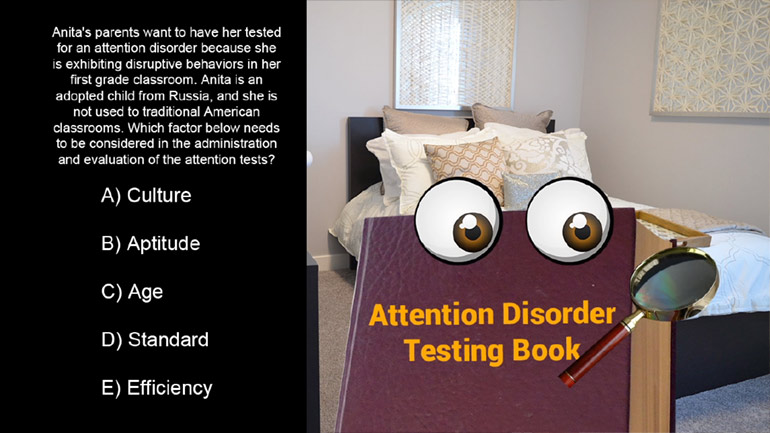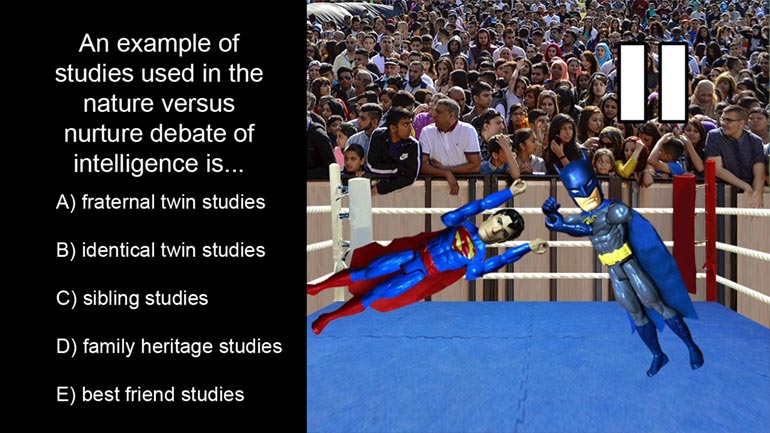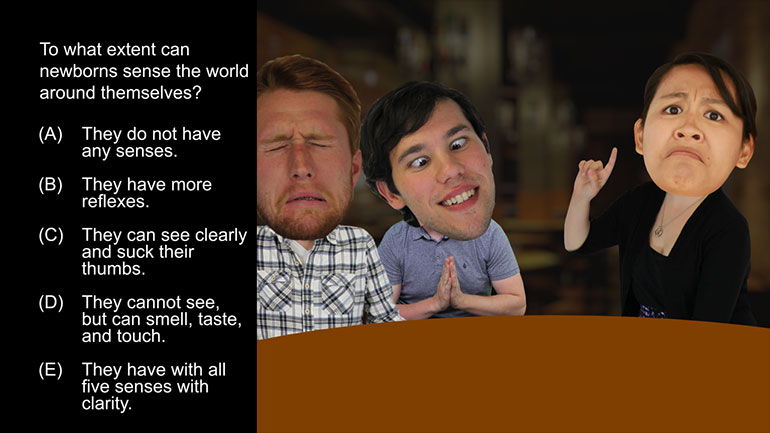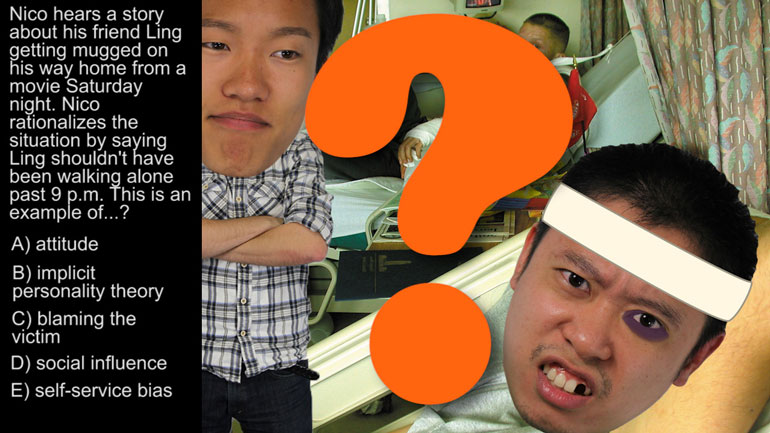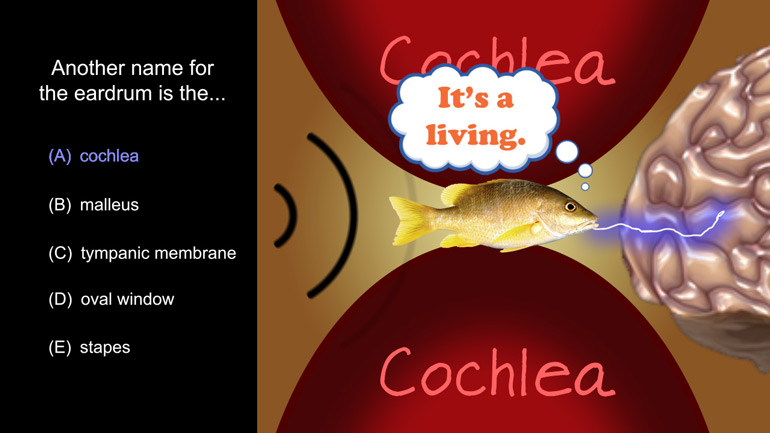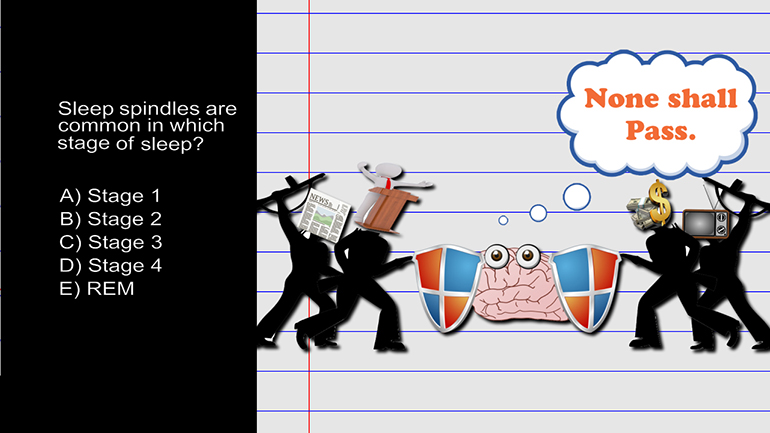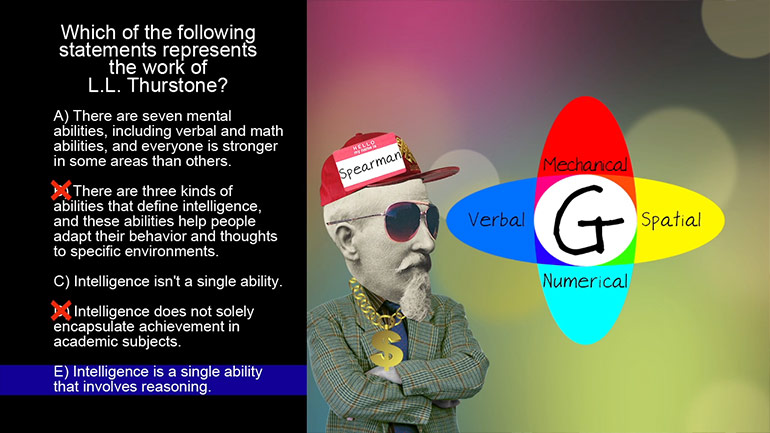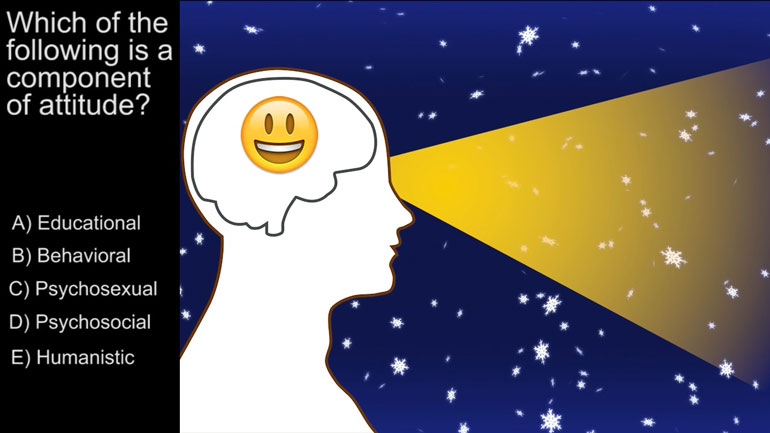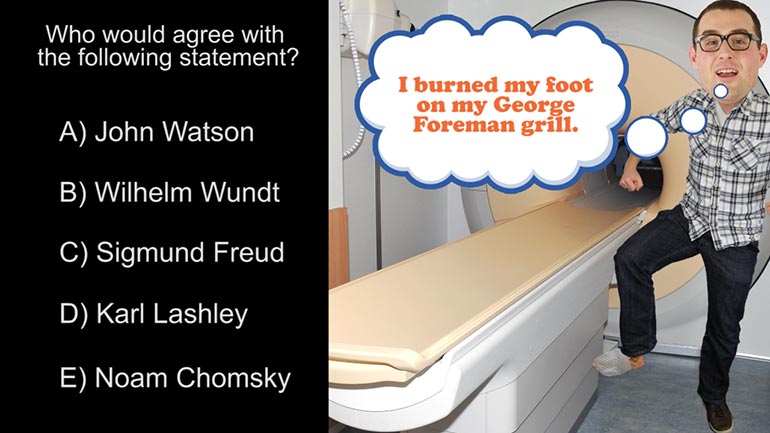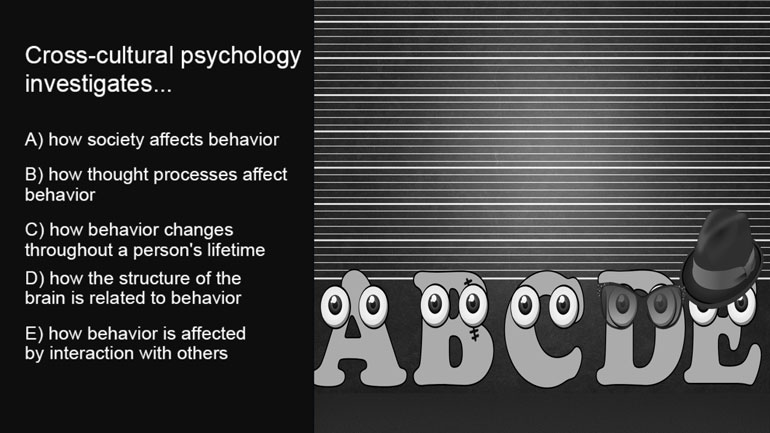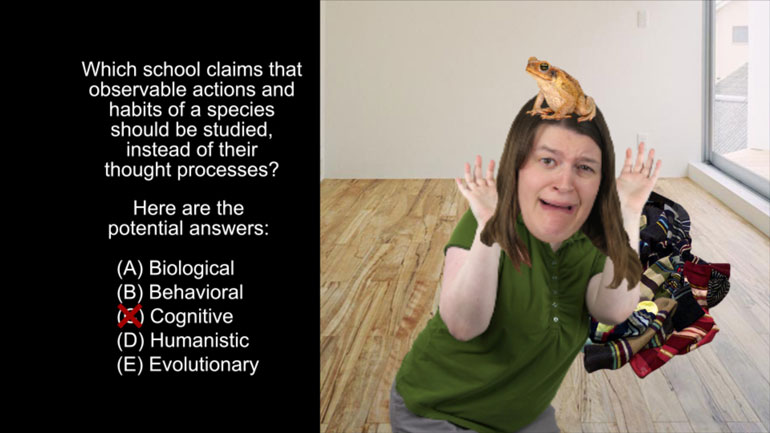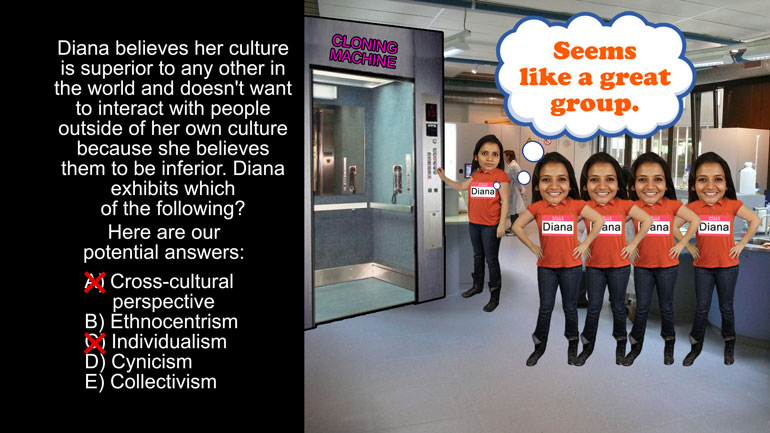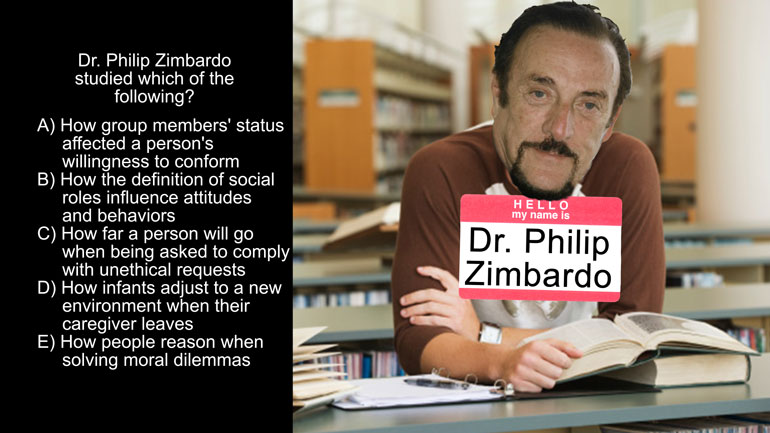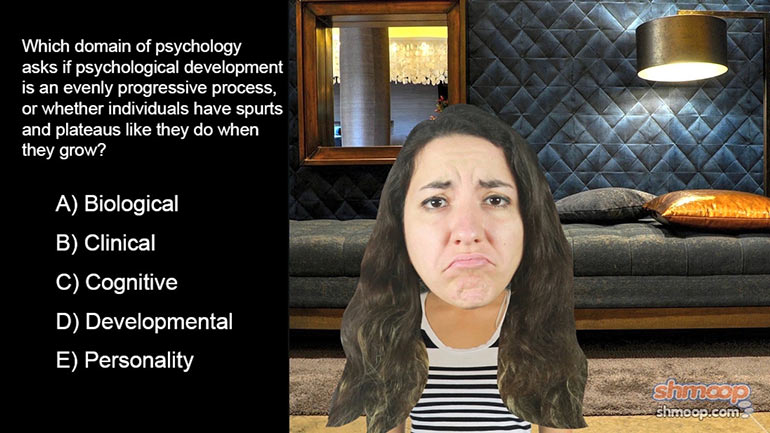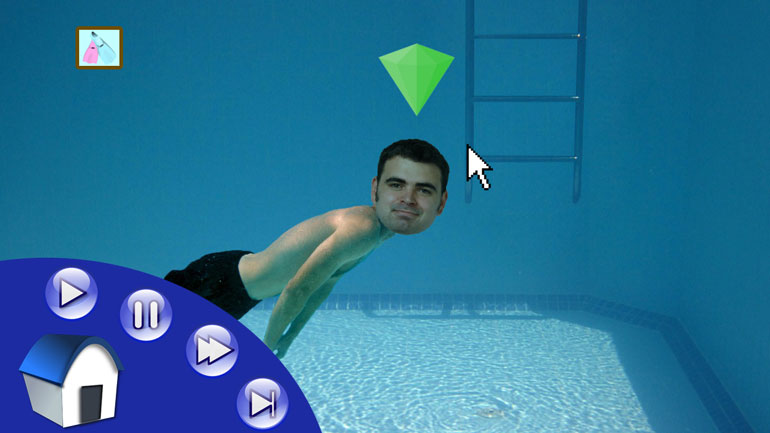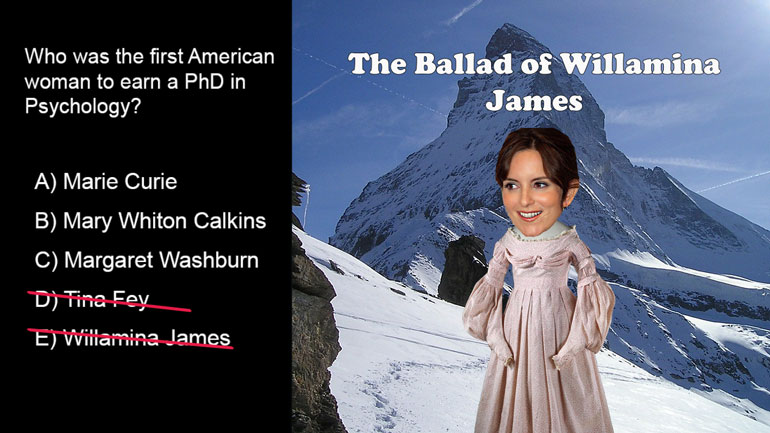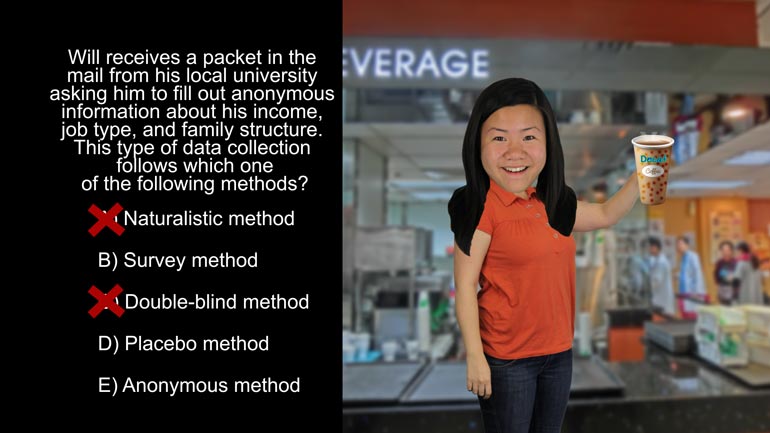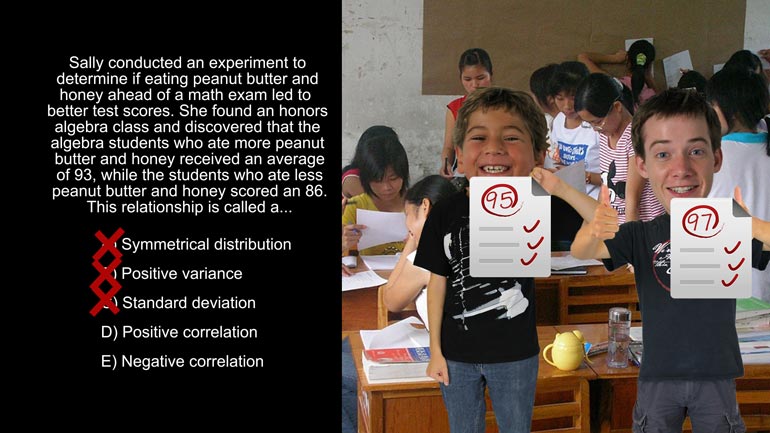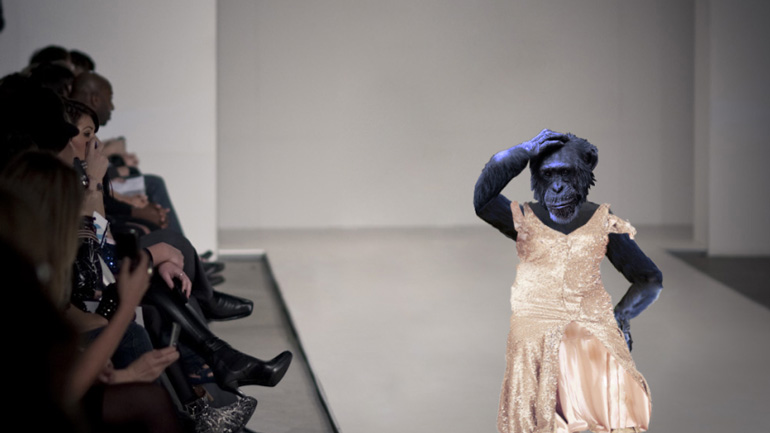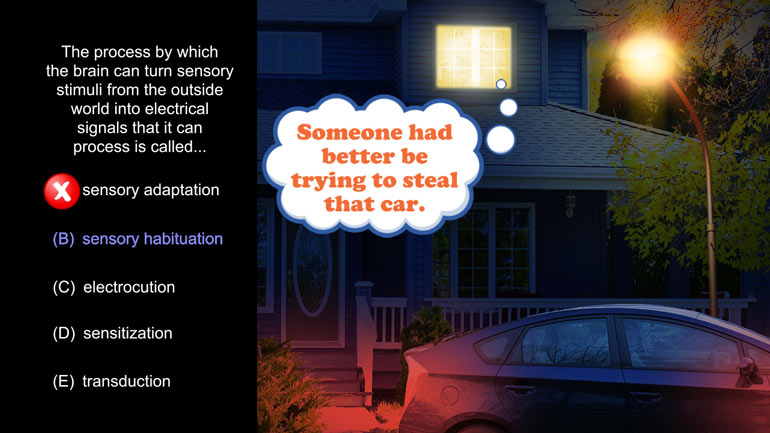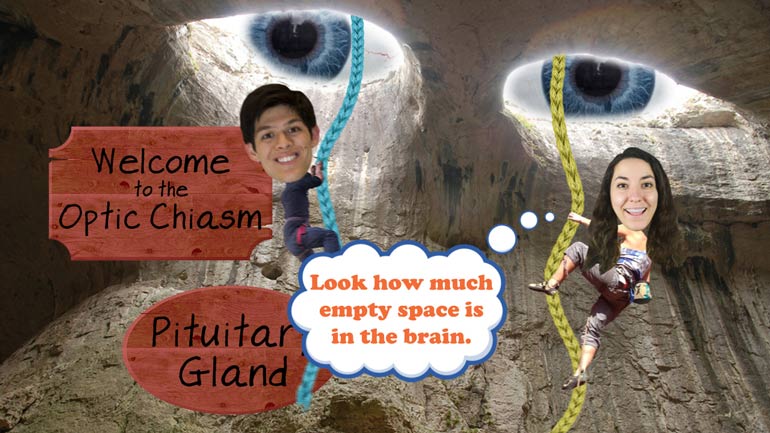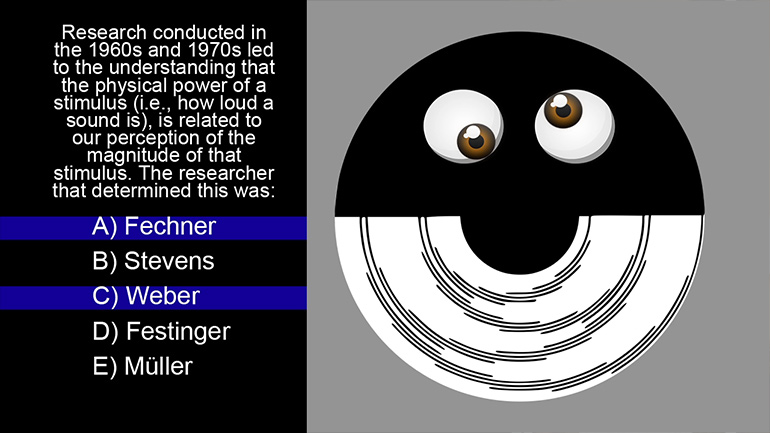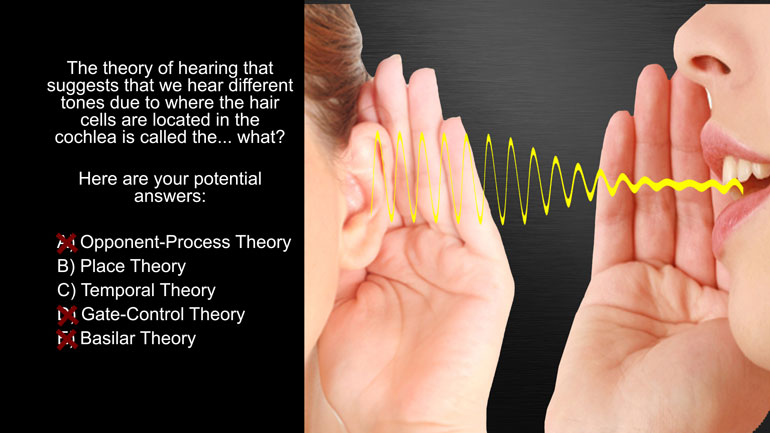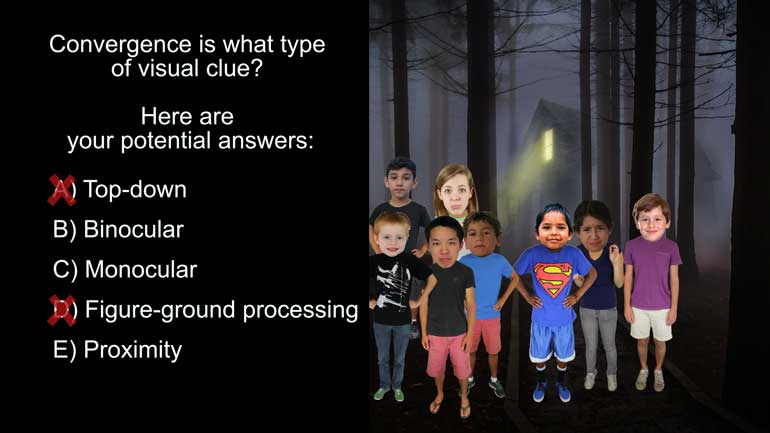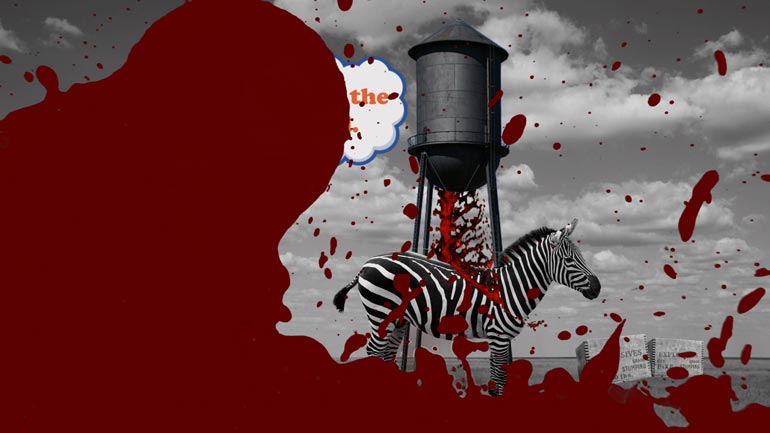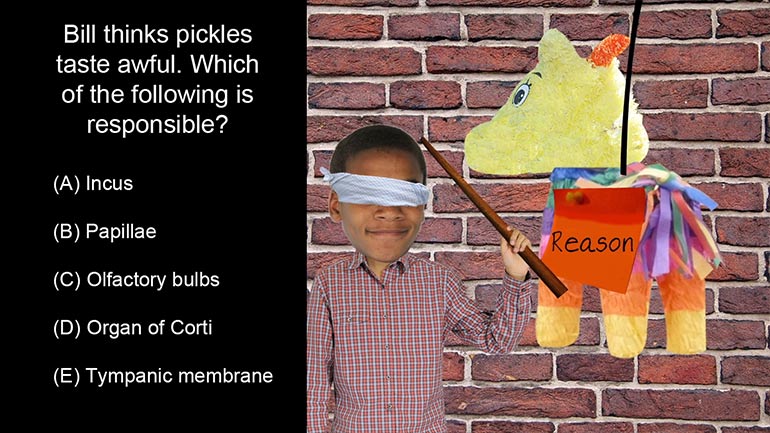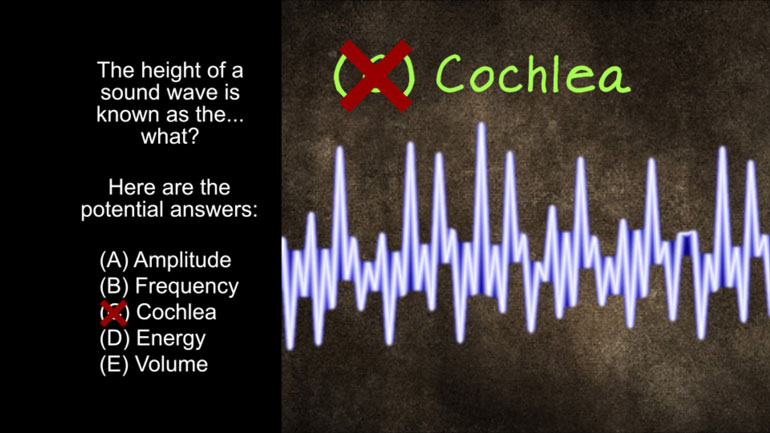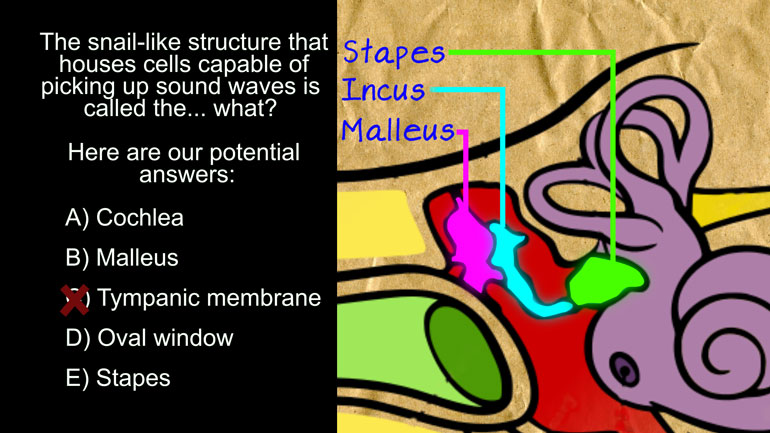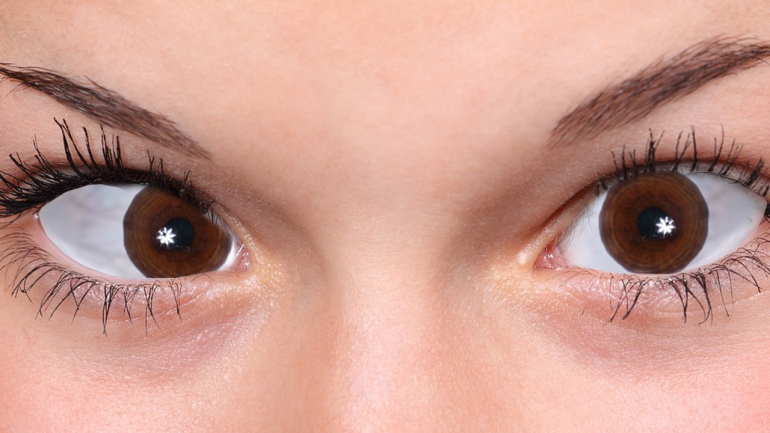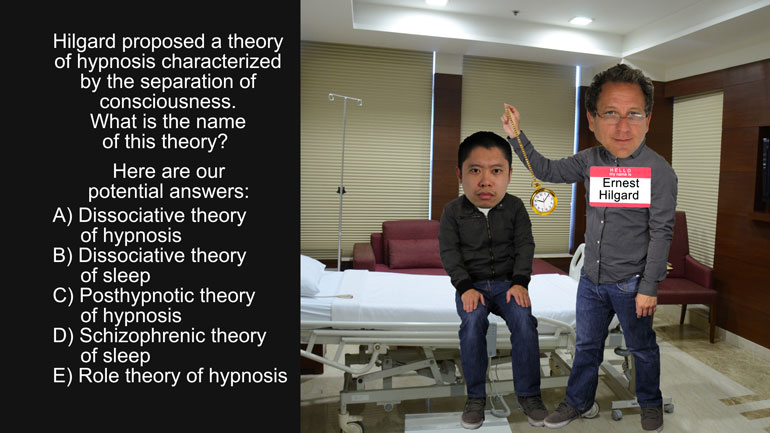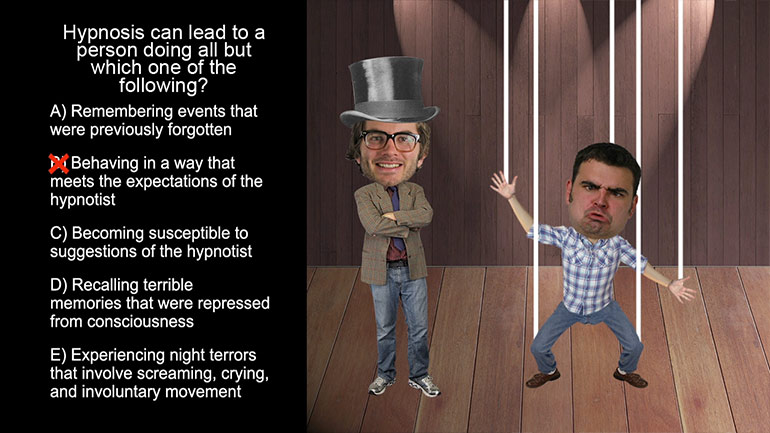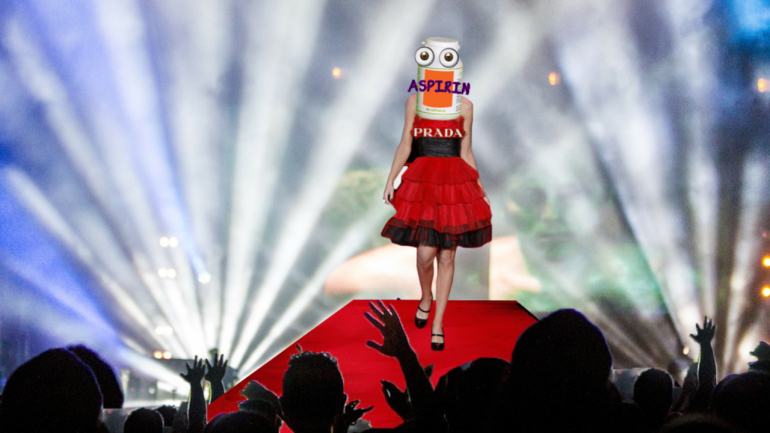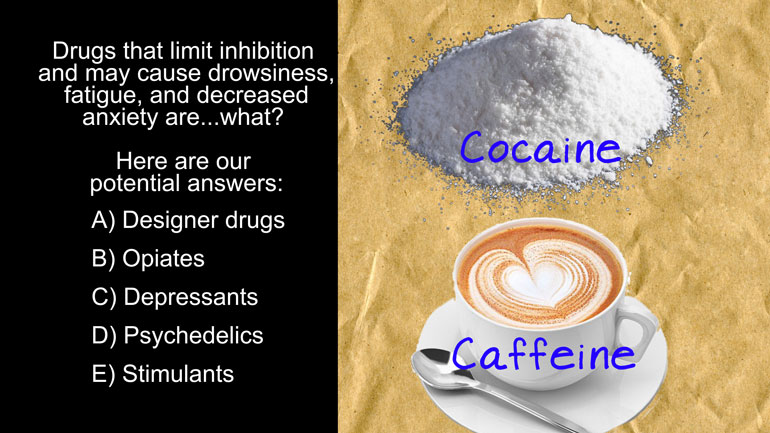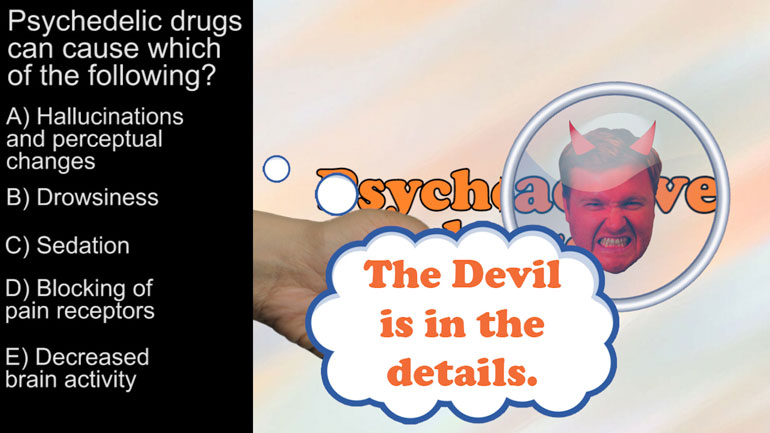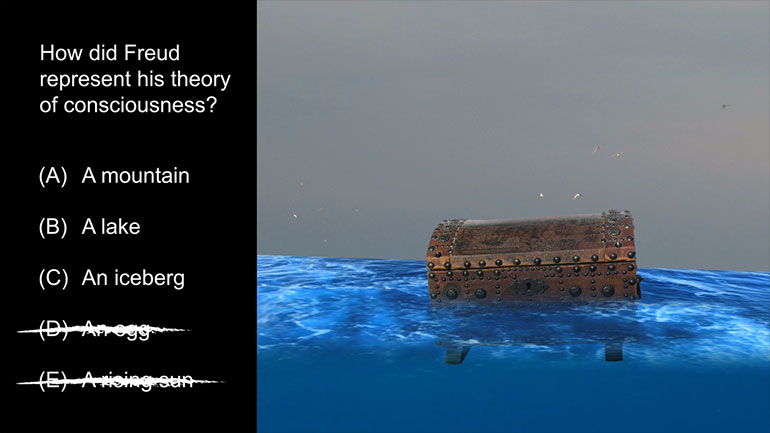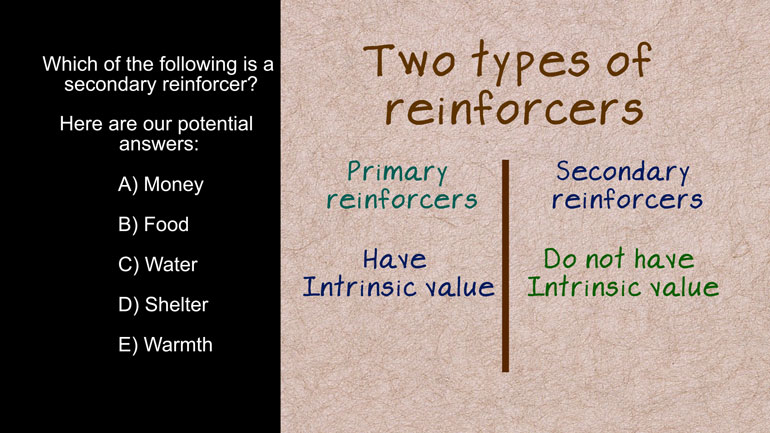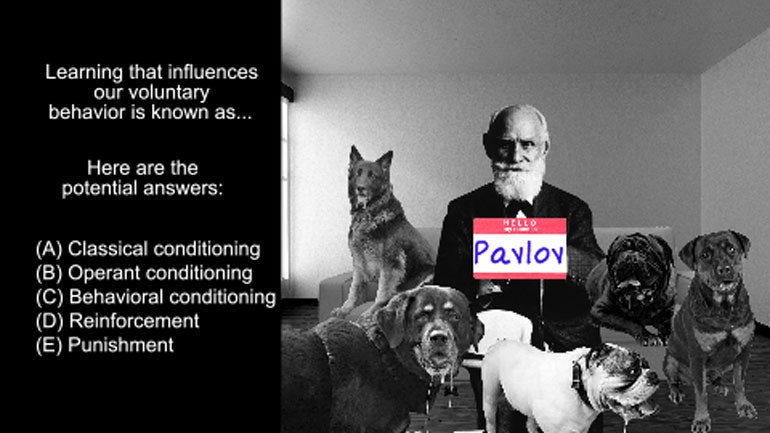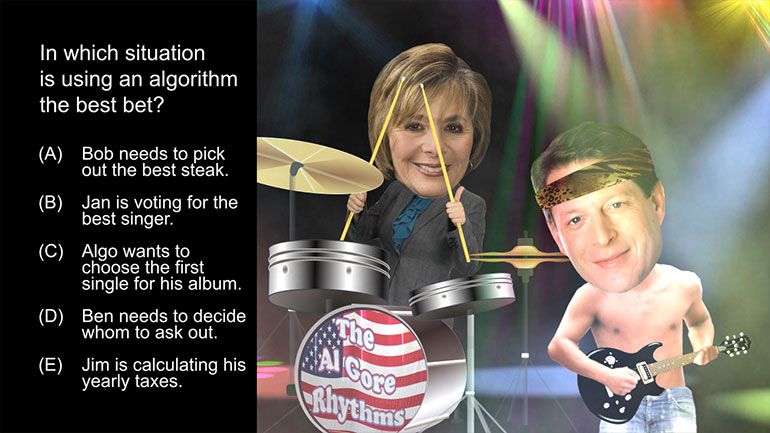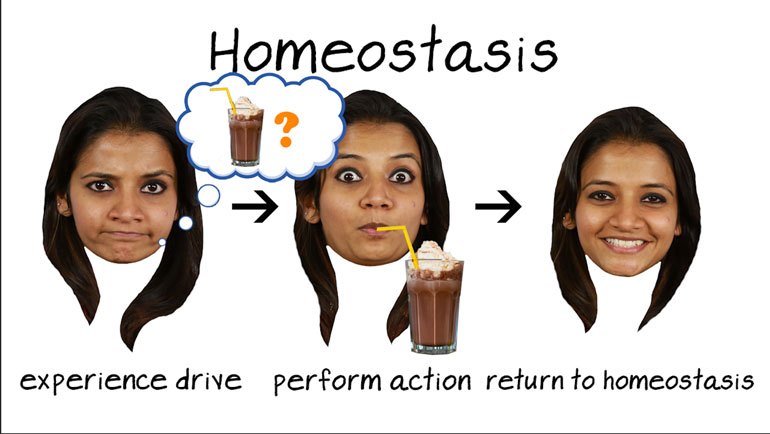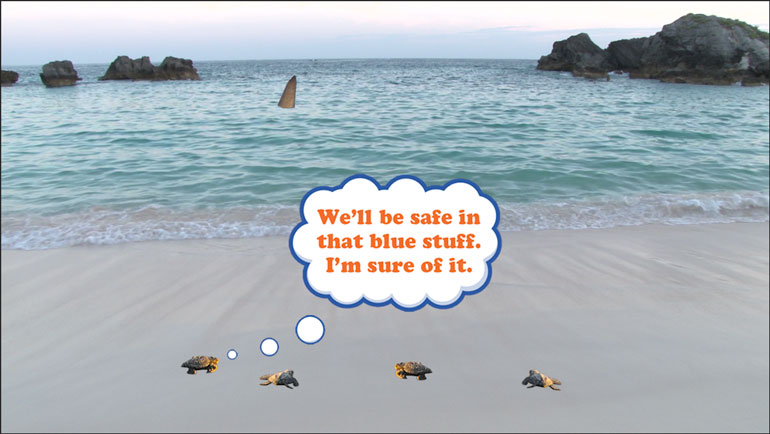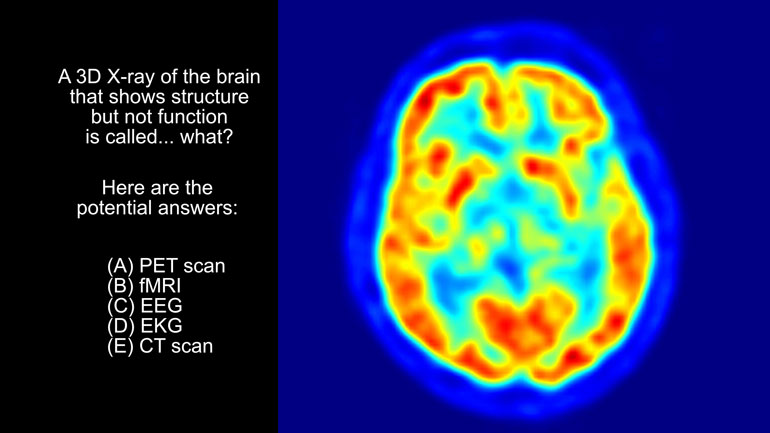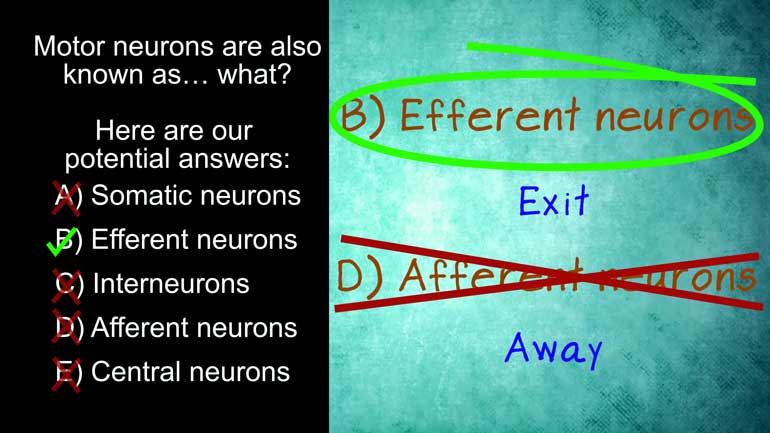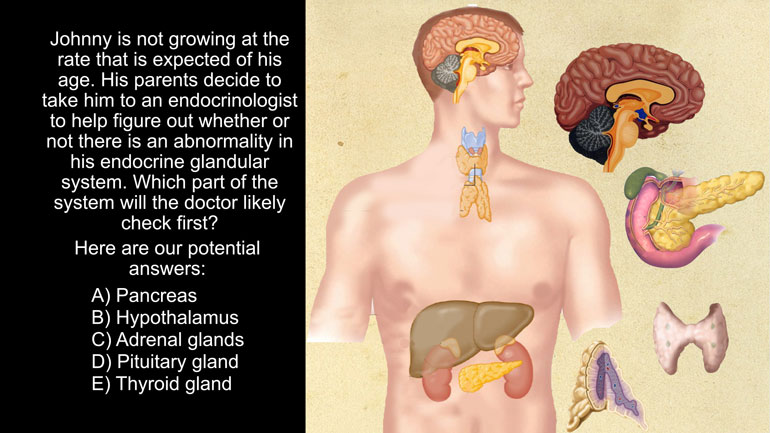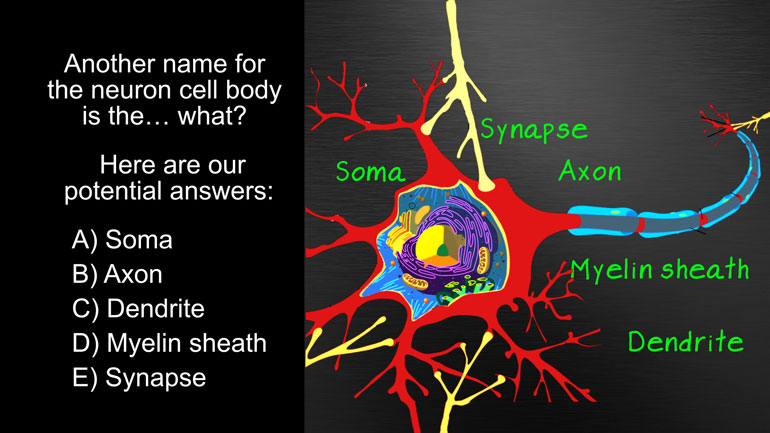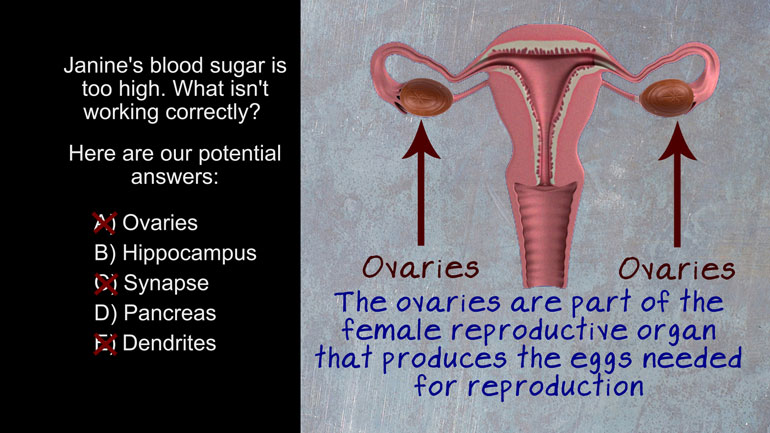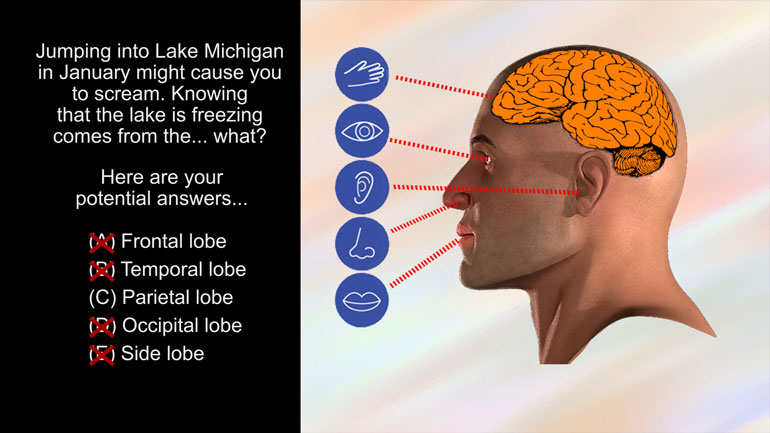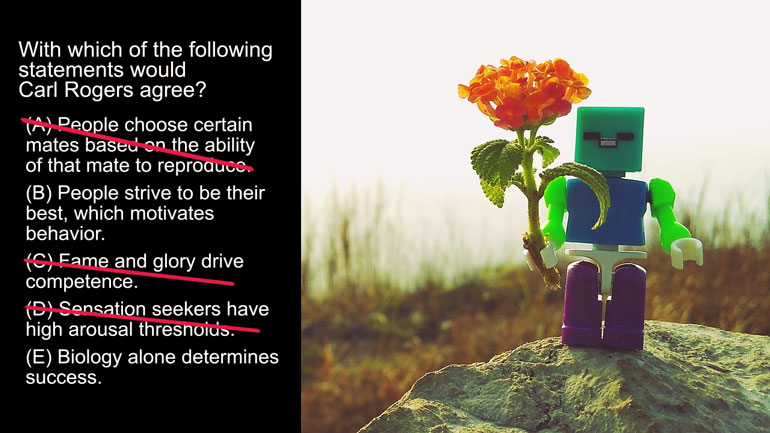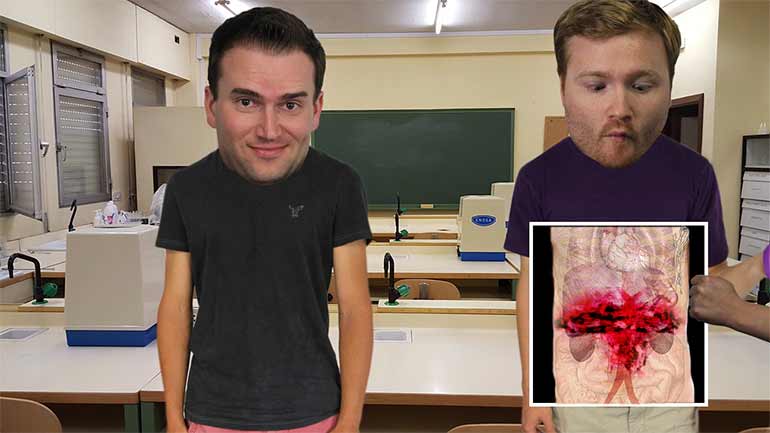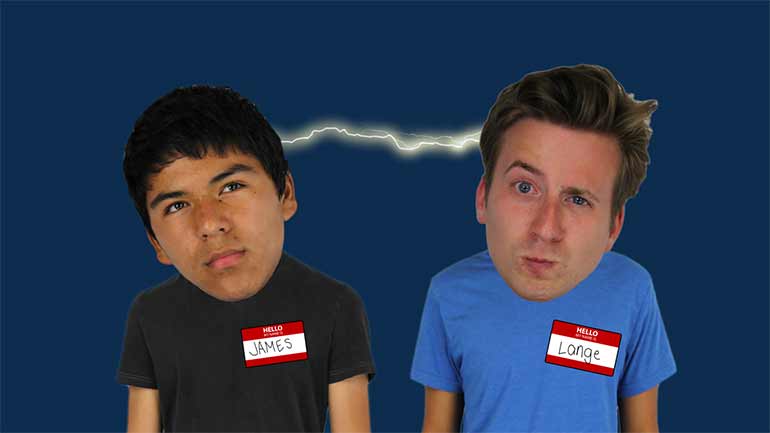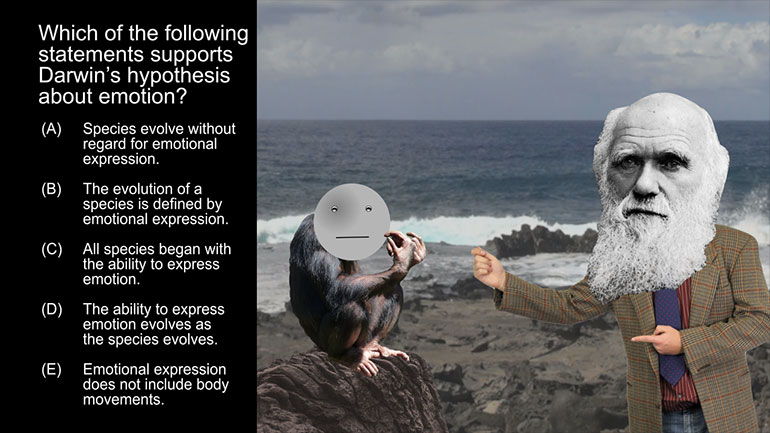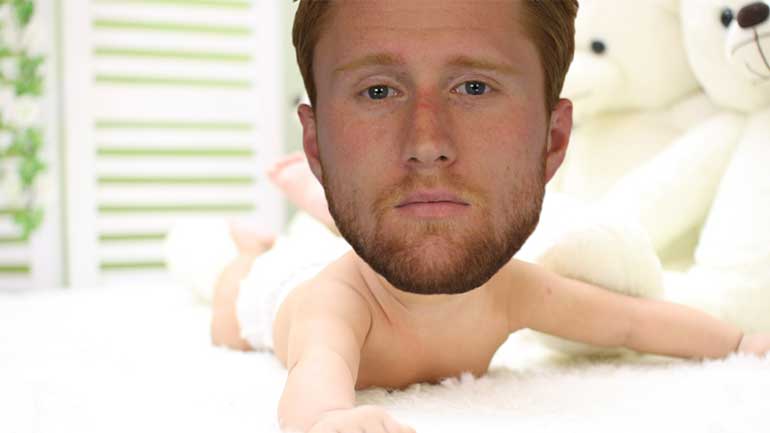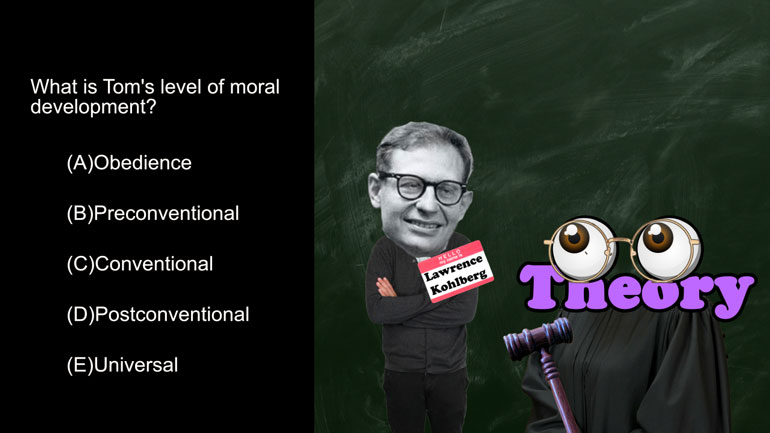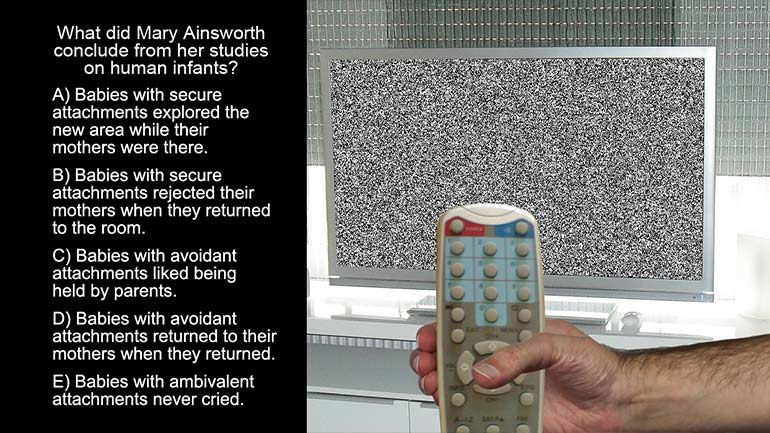ShmoopTube
Where Monty Python meets your 10th grade teacher.
Search Thousands of Shmoop Videos
AP Psychology Videos 135 videos
AP Psychology 2.3 Testing and Individual Differences. Which factor below needs to be considered in the administration and evaluation of the attenti...
AP Psychology 2.4 Testing and Individual Differences. Which of these is an example of studies used in the nature vs. nurture debate of intelligence?
AP Psychology 1.2 Developmental Psychology. How would you respond to someone stating that babies are born without any real sense of the world aroun...
AP Psychology 2.3 Testing and Individual Differences 5 Views
Share It!
Description:
AP Psychology 2.3 Testing and Individual Differences. Which factor below needs to be considered in the administration and evaluation of the attention tests?
Transcript
- 00:04
And hear her shmoop du jour brought to you by disruptive behavior
- 00:07
which is er, hey! Stop that seriously hey all right I Nina's parents want to have her [Boy scribbling a line through a chalkboard]
- 00:13
tested for an attention disorder because she's exhibiting disruptive behavior
- 00:18
in her first grade classroom. Anita is an adopted child from Russia and she has
- 00:23
not used to traditional American classrooms..Which factor below needs to be
Full Transcript
- 00:28
considered in the administration and evaluation of the attention test and
- 00:33
here the potential answers... Right no
- 00:37
excuse for doctors to give drugs here for no reason all right seeing as how the
- 00:41
test would be looking for attention disorders we can easily eliminate [attention disorder book using a magnifying glass]
- 00:44
aptitude as an aptitude test is a completely different sort of test one
- 00:49
that's designed to assess a person's capability or potential capability in a [Man looking confident of passing an aptitude test]
- 00:54
specific type of task examples of an aptitude test include like a swimming
- 00:59
test, a cello exam or math test..totally different things of course age would be [Man drawing the number 1 on a chalkboard]
- 01:06
an obvious factor in any test addressing one's behavior certain behaviors are
- 01:09
definitely more appropriate for a first grader than say a 12th grader seriously [A young boy holding an ice cream next to a girl and throws it away]
- 01:14
that being said there's nothing stated in the question that specifically
- 01:17
suggests age would be any more of a consideration than normal so it doesn't
- 01:21
quite fit and answers D and E are both big red herrings standard just refers to the [Two large goldfish with name labels]
- 01:27
standards of any given test while efficiency simply describes whether or
- 01:31
not a means of testing something is the well, efficient so the answer is A
- 01:35
culture..Culture is of specific importance in this instance because
- 01:39
Anita is from Russia and therefore not used to traditional American classroom [An image of the country Russia]
- 01:44
cultural differences then could play a part in skewing and misrepresenting her
- 01:48
results on a given test why because specific questions and procedures in the
- 01:53
test might just be biased towards the culture from which it originates
- 01:57
specifically perhaps behaviors or patterns that would be seen as
- 02:00
indicative of a potential attention disorder here may in fact be completely [atypical behaviour from USA moves to Russia]
- 02:05
normal when observed from a different cultural perspective that being said we
- 02:10
can think of any particular culture or geographic region where
- 02:13
post elementary school cooties phobia is considered the norm [Boy wearing a gas mask beside a girl]
Related Videos
AP Psychology 2.2 Social Psychology. Which of the following was an independent variable manipulated in Asch's research?
AP Psychology 1.1 Personality. According to Freud, these three parts of personality are constantly in conflict.
AP Psychology 1.1 Sensation and Perception. The process by which the brain can turn sensory stimuli from the outside world into electrical signals...
AP Psychology 1.1 Social Psychology. Which of the following best describes social psychology?
AP Psychology 1.1 States of Consciousness. Who conducted research on REM sleep deprivations?
